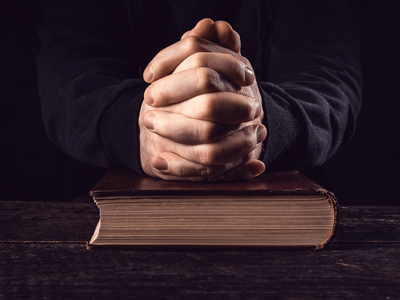
Catholicism - The Holy Bible
This GCSE RE quiz on Catholicism asks questions about the Holy Bible. Roman Catholics, along with the Orthodox Church, use the same main collection of Holy Bible texts (in Old and New Testaments) as do the Protestant denominations, so for ‘basic’ Bible awareness you would do well to look into our parallel quizzes in the non-RC Christianity strand (of which several include ‘Bible’ in their titles), or indeed our Judaism quizzes for what many of us know as the Old Testament.
These ‘other’ books are seven in total, under titles appearing mainly as a mix of Jewish eponyms and history. (Obviously Jews do not hold with the New Testament, but even though the apocryphal books pertain to their own history and culture, they do not hold with those either.) The precise composition of the Apocrypha ~ a Greek term, meaning ‘hidden’ ~ or, as Catholics know it, the Deuterocanonical Books (i.e. ‘of secondary rank’) has itself varied a little over time, and there are three further Books which complete Protestant Bibles include but that Catholic ones do not.
The 5th-century Latin Bible of St Jerome, usually known as the Vulgate, includes the apocryphal seven books, as did the Gutenberg Bible which was the western world’s first major moveable-type printing project, just over a thousand years later. By the time of England’s ‘King James’ (Authorised) Version in 1611, there were no fewer than 14 Books in its separate Apocrypha section.
In our current context we probably do not need to go into great detail as to which of these books or passages were later dovetailed back into the Old Testament, but we’ll concentrate on material to be found in Catholic Bibles as we make our way onward into the 3rd Christian millennium, and three of which have been lent further credence by the discovery of early manuscript copies among the Dead Sea Scrolls in 1947.
Ready for more?
not all...
quizzers. Try to win a coveted spot on our Hall of Fame Page.







